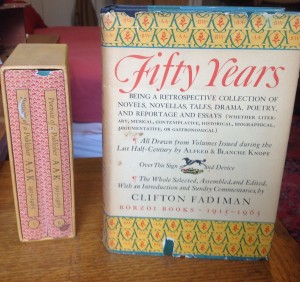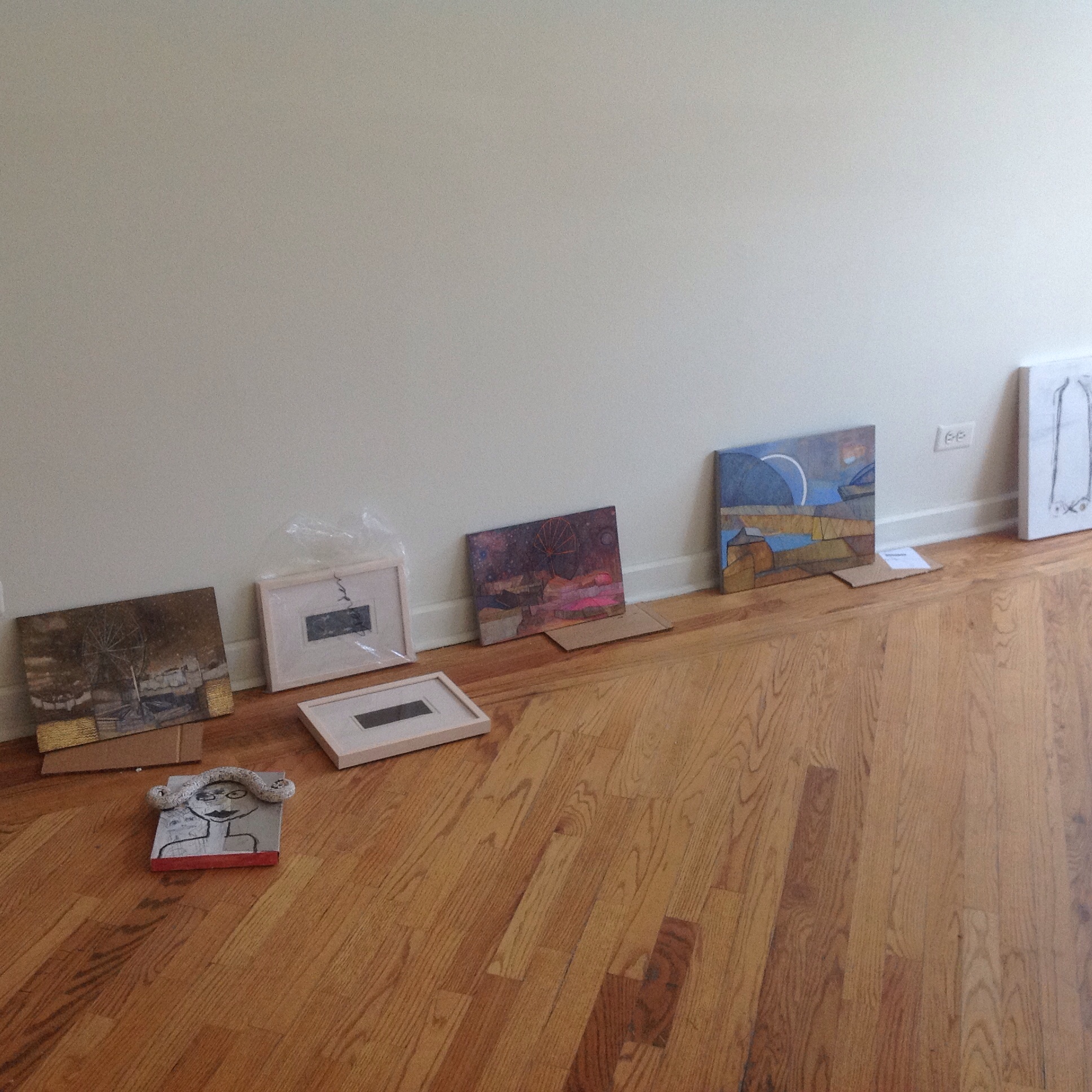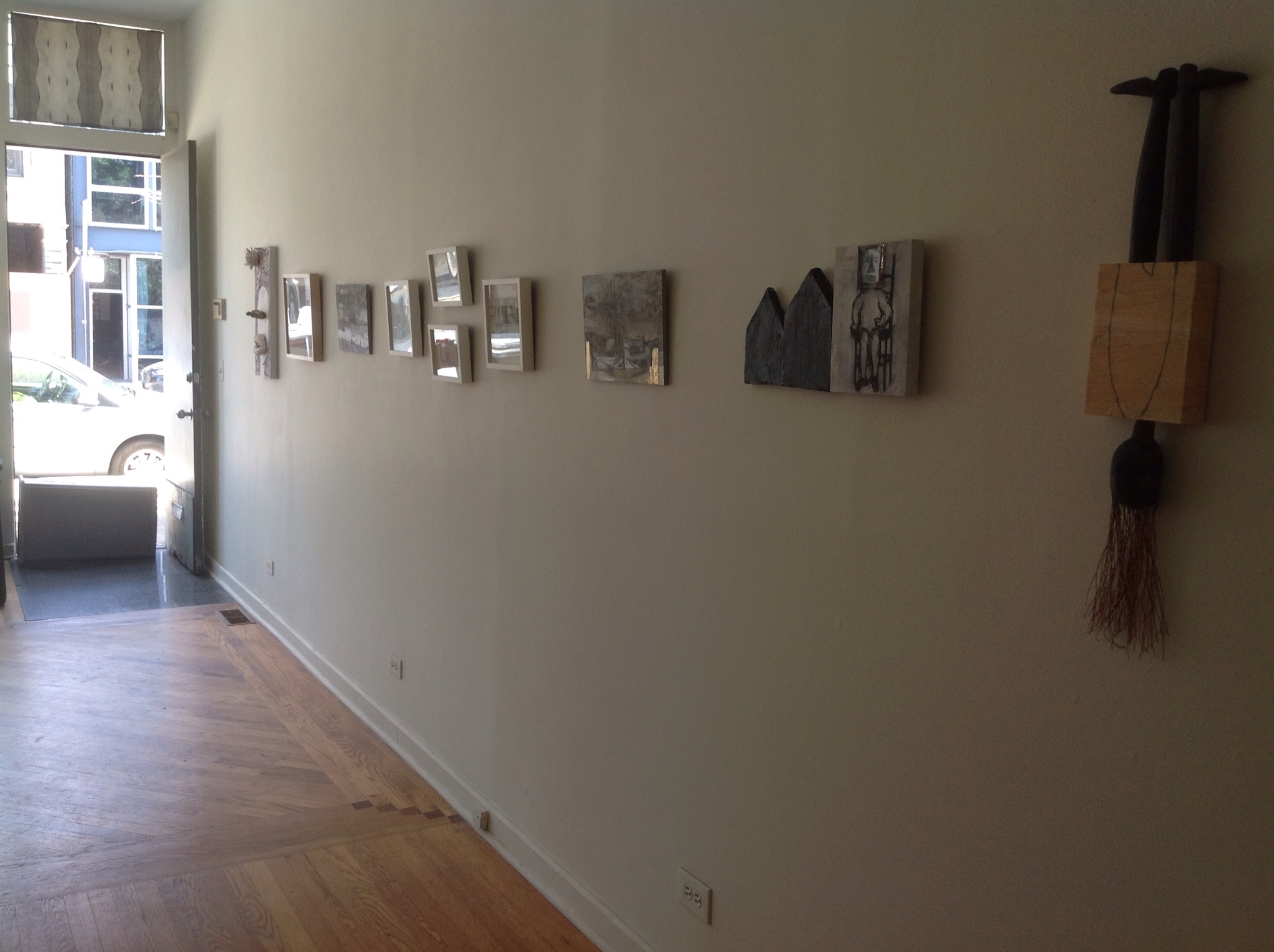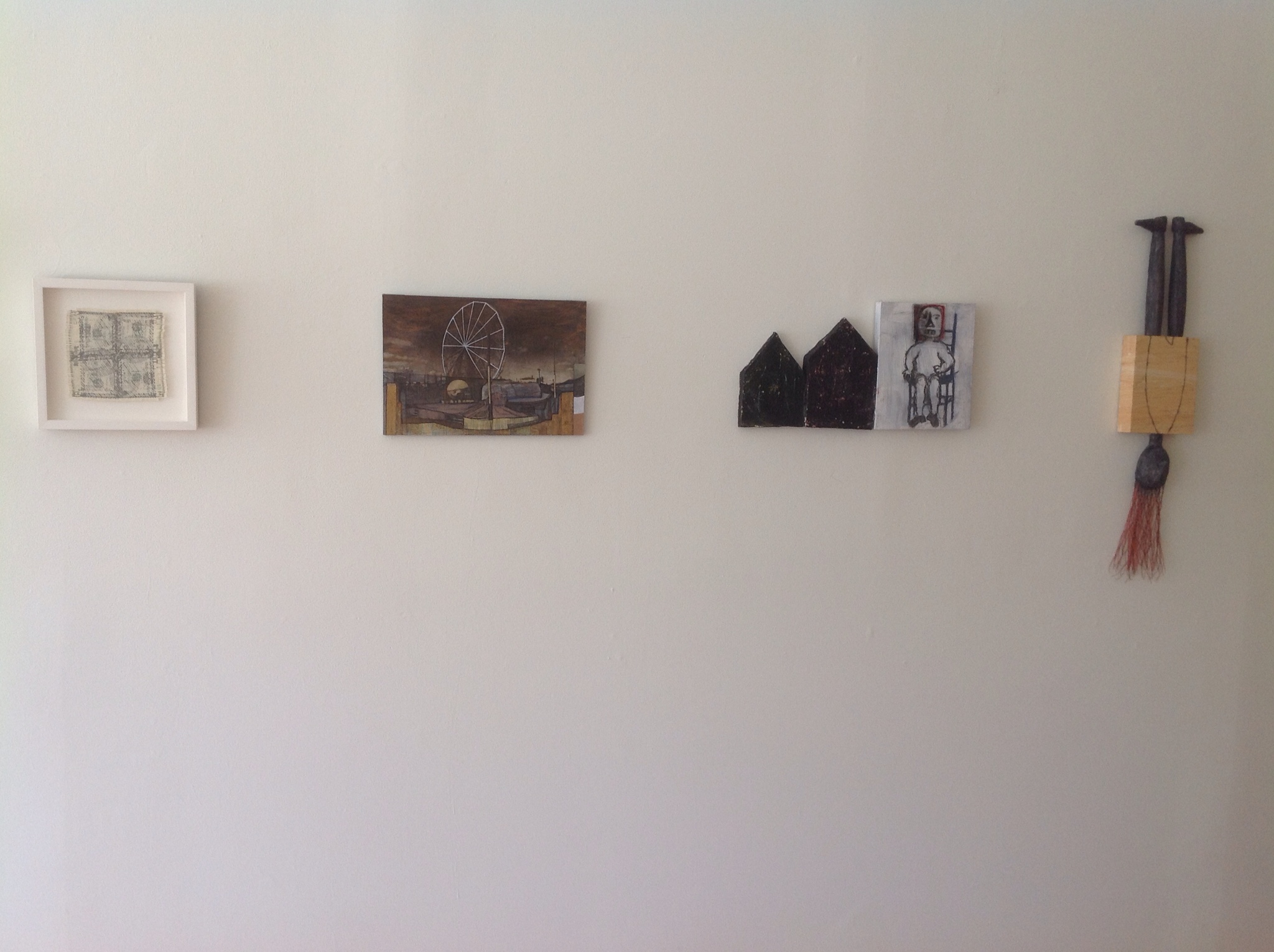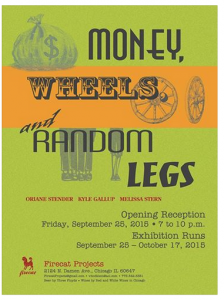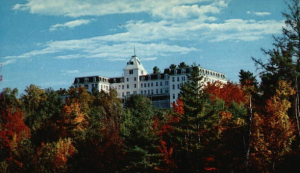Alfred A. Knopf, 100 Years On
/0 Comments/in Book Biz /by Philip TurnerInstallation Day for “Money, Wheels and Random Legs” at Chicago’s Firecat Projects, Sept 25-Oct 17
/0 Comments/in Art, Film, TV, Photography, Fine Printing & Design, Personal History, Family, Friends, Education, Travels /by Philip TurnerPhotos of Installation Day at Firecat Proects. Opening night for “Money, Wheels and Random Legs”—with work by artists Oriane Stender, Kyle Gallup and Melissa Stern—Friday Sept 25, 7-10pm, Firecat Projects, 2124 N Damen Street.
“Money, Wheels, and Random Legs” Exhibit at Chicago’s Firecat Projects
/1 Comment/in Art, Photography, Design, Personal History, Family, Friends, Education, Travels, Urban Life & New York City /by Philip TurnerI’m excited to be traveling to Chicago next week where paintings by my wife, artist Kyle Gallup, will be part of a three-person show at Firecat Projects, with fellow NYC artists Oriane Stender and Melissa Stern. Watch this space for more coverage, as I’ll be blogging from the opening on Sept 25 and during our week in the Windy City. Here you can view “Pink Planet,” one of the paintings in the exhibit, with the rest shown at Kyle’s updated website.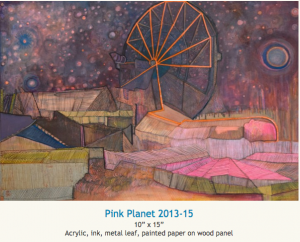
Re-gathering the Franconia College Tribes, Aug 14-16
/0 Comments/in Personal History, Family, Friends, Education, Travels /by Philip TurnerHelping Authors Reach their Goals as an Independent Editor since 2009
/1 Comment/in Books & Writing, Philip Turner Book Productions, Publishing & Bookselling /by Philip TurnerIt’s always gratifying when I know I’ve helped an author make his or her book better than when I received the manuscript from them, and even better when they show their appreciation with a recommendation that I can use in marketing my editorial and publishing services to other writers. Professor Dov Waxman’s Trouble in the Tribe: The American Jewish Conflict over Israel is an extremely important and timely book, just the kind of title I enjoyed acquiring when I was an in-house editor, one that I am proud to have worked on with Prof Waxman under the rubric of Philip Turner Book Productions. I look forward to seeing it in print in 2016. Meantime, I’m pleased to share his recommendation of my services:
“I was looking for someone to edit my book Trouble in the Tribe: The American Jewish Conflict over Israel (Princeton University Press, 2016) and my agent recommended Philip Turner. His recommendation was excellent. Philip turned out to be exactly the kind of editor I was looking for—thorough and detailed, with a keen understanding of my goals as a writer, my intended audience, and my book’s arguments. His careful editing has certainly improved my book, and I recommend him wholeheartedly.”—Dov Waxman, Professor of Political Science, International Affairs, and Israel Studies, Stotsky Professor of Jewish Historical and Cultural Studies, Co-Director, Middle East Center, Northeastern University
Twilight Cruise on the Hudson and NY Harbor
/0 Comments/in Media, Blogging, Internet, Urban Life & New York City /by Philip Turner My sister Pamela and her good friend Billy visited NY the past couple days, and last evening she took us on a Classic Harbor Line cruise in NY harbor with an AIA-certified guide, Scott Cook, who spoke very knowledgeably about NY buildings and the Manhattan, Brooklyn, and NJ waterfronts. It was far superior to NY’s more well-known and trafficked Circle Line! The docent Cook, one of six architecture professionals who work these cruises for Classic Harbor, was very good, a fluent speaker, quick to deliver interesting information on individual buildings, their locations, the architects responsible for them, and details of their design and especially their ‘green’ features. He described NY’s waterfront as our “sixth borough,” an idea that really appeals to me, and he broached urban issues, from climate change to how the Hudson River Park and Brooklyn Bridge Park are permitting high-rise development in exchange for resources for upkeep of these newly created public spaces.
My sister Pamela and her good friend Billy visited NY the past couple days, and last evening she took us on a Classic Harbor Line cruise in NY harbor with an AIA-certified guide, Scott Cook, who spoke very knowledgeably about NY buildings and the Manhattan, Brooklyn, and NJ waterfronts. It was far superior to NY’s more well-known and trafficked Circle Line! The docent Cook, one of six architecture professionals who work these cruises for Classic Harbor, was very good, a fluent speaker, quick to deliver interesting information on individual buildings, their locations, the architects responsible for them, and details of their design and especially their ‘green’ features. He described NY’s waterfront as our “sixth borough,” an idea that really appeals to me, and he broached urban issues, from climate change to how the Hudson River Park and Brooklyn Bridge Park are permitting high-rise development in exchange for resources for upkeep of these newly created public spaces. 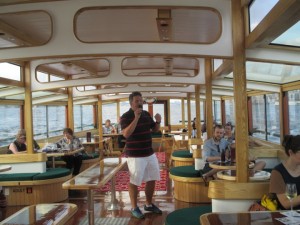
The docents have to be quick because the boats of Classic Harbor are so-called ‘motor yachts,’ and they cruise at quite good speed. The vessel we sailed on was the Manhattan II, nicely appointed with teak and mahogany and lots of clean, clear wrap-around glass. Inside was a lounge with many comfortable seats at wide tables, quite a roomy space. The copy on the brochure and map they handed out (pictured below) suggests that these NY Harbor cruises are the least crowded of all the lines offering these boat rides, and I believe it—nothing at all like being on the subway, an unfortunately apt comparison for the ride I took a couple years ago on the Circle Line. Out on deck there’s some bench seating, and enough room to walk and stand comfortably, though carefully, leaning on rails and holding on to pieces of the ship. The captain was a rather young mariner, who helmed the yacht very ably, coming to a floating rest a number of times, near the Statue of Liberty, the shore of Governors Island, the Brooklyn and Manhattan Bridges, and Battery Park City. Figured in to the price of a ticket is a free drink, so Kyle and I welcomed the discovery that Yuengling’s light beer is very drinkable!
A coincidental sidelight made me eager to go on this tour: when I was executive editor with Times Books at Random House in the late ’90s, I acquired, edited, and published the 4th Edition of the AIA Guide to New York City, an essential handbook that has been published continuously since 1967, with a new edition out roughly every decade. The edition I published—by architect and pithy writer about buildings and public spaces Norval White—included entries on more than 5,000 of the metropolis’s buildings in all five boroughs, a book I still treasure.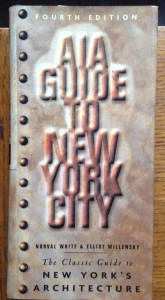
I hope at some point to take Classic Harbor Line’s cruise that circumnavigates all of Manhattan, a three-hour trip, twice the duration of the trip we took Sunday night. Given my personal interest in the GWB, aka The Great Gray Bridge, and The Little Red Lighthouse, I’m sure I will enjoy that tour even more. Here are lots more of my pictures, with commentary in the captions, though it’s a dead certainty I’ll come nowhere recalling most of the buildings and architects that Scott Cook named, but the day was so clear with abundant light, I think you’ll be able to appreciate many of the views and buildings anyway.
Ducks on the Hudson
/0 Comments/in Bicycling, Urban Life & New York City /by Philip TurnerLooking south with a flock of ducks from Hudson Beach w/a view of the west side of Manhattan and downtown w/NJ shore on the far right.
Source: Philip Turner


